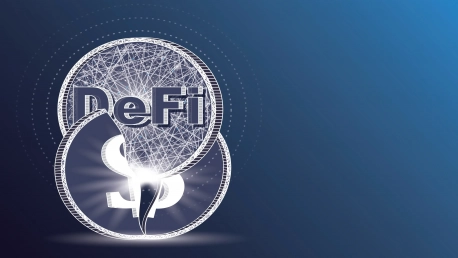Recent advancements in decentralized finance (DeFi) have paved the way for the emergence of Real-World Asset (RWA) protocols, creating a dynamic juncture between the traditional finance (TradFi) sector and DeFi innovations. The tokenization of both tangible assets, like real estate, and intangible ones, such as intellectual property rights, is redefining investment landscapes by expanding access and liquidity in previously constrained markets. As these dual worlds of finance converge, managing these RWA protocols demands an acute understanding of their incipient technology and the foresight to navigate their nuanced complexities. This article delves into the transformative realm of RWA protocols, underscoring the best practices pivotal for their successful integration and management within the ambit of DeFi.
Tokenization and Its Impact on Asset Liquidity
The act of tokenization is akin to granting a new lease on life to real-world assets, as it digitizes them and establishes them as tradable tokens on the blockchain. This innovative metamorphosis opens the gates for global accessibility, allowing an unprecedented scope for portfolio diversification and inviting investment from a more extensive, more varied audience. An emblem of DeFi’s pioneering spirit, tokenization endows previously illiquid assets with newfound fluidity, catalyzing their appeal and enhancing their marketability to prospective investors across the globe.The tokenization of assets isn’t just a technological feat—it’s a financial revolution. With these assets now forged into the realm of blockchain, investors from all walks of life can participate in markets once cordoned off by geographical and regulatory barriers. By simplifying investments into accessible, divisible tokens, the process democratizes asset ownership, fostering a more inclusive economy where liquidity is no longer a privilege but a universal opportunity.
The Challenges of Integrating TradFi with DeFi
Bridging the established world of TradFi with the frontier territory of DeFi is no small feat. The intricate dance of integration involves a respectful understanding of both worlds’ regulatory frameworks, a deft hand at risk management, and an agile operational strategy. Blocksquare illustrates this delicate balance with finesse, having navigated the complexities of the EU land registry to tokenize a real estate transaction. This precedent paints a hopeful picture for the harmonious fusion of traditional real estate markets with the efficiency and innovation characteristic of DeFi.Integrating RWA protocols into the conservative circuits of TradFi involves more than the mere porting of technologies—it necessitates a confluence of philosophies and regulatory practices. It’s the alchemy of transforming leaden processes into golden opportunities for innovation. The success stories of pioneers like Blocksquare and their counterparts in the crypto ecosystem stand as testaments to the potential of RWA protocols in reshaping global finance.
Risk Management in RWA Protocols
When venturing into the relatively uncharted waters of RWA protocols, charting a course of risk management is not just prudent but essential. Entities such as Zivoe spotlight the importance of employing tools like special purpose vehicles (SPVs) to collateralize loans, thereby insulating against potential credit risks. This strategic foresight is more than conservative financial planning—it’s an orchestration of safeguards woven into the very fabric of a protocol’s operations.The key to scaling RWAs lies in meticulous attention to managing operational, market, and legal risks while nurturing the growth of the protocol. Zivoe’s approach in employing SPVs articulates a blueprint for underpinning a stable lending environment. By anticipating and mitigating risks, RWA protocols safeguard themselves against the unpredictability of markets, ensuring the steadfastness required in the tumultuous seas of finance.
Navigating Regulatory Compliance
In an arena where innovation races ahead at breakneck speed, compliance with legal regulations is the anchor that ensures these evolutionary strides do not lead to a capsize. It’s imperative for RWA protocols to uphold stringent standards of legitimacy, not merely to circumvent legal pitfalls but to forge a rapport of trust and reliability with regulatory bodies. Constant vigilance and dialogue with regulators is the compass that steers RWA protocols through the legal maelstrom, guaranteeing their seamless operation within legal frameworks both current and forthcoming.Regulatory compliance in the context of RWA protocols is a delicate balancing act. On one side, there is the need to spur innovation and explore new boundaries in asset management. On the other, there is a rigorous demand for adherence to established legal norms that safeguard the integrity of financial markets. It’s the interplay of innovation and regulation that will determine the ultimate efficacy and acceptance of RWA protocols in mainstream finance.
The Role of Community Governance
Beyond the allure of technological prowess and the solidity of compliant frameworks, lies the very heart of DeFi—community governance. Through the creation and nurturing of decentralized autonomous organizations (DAOs), RWA protocols gift their token holders with a voice—a chance to partake actively in the decision-making processes that shape the protocol’s course. This democratization of governance fosters a sense of ownership and accountability, fostering a community-centric approach that is as robust as it is responsive.Community governance in the context of RWA protocols does more than evoke a sentiment of inclusiveness; it actively infuses the operations of these protocols with the diverse insights and aspirations of its constituents. As such, DAOs become not only forums for discussion but crucibles of collective wisdom—ensuring decisions are not only technically sound but also deeply resonant with the community ethos.
Technological Foundations and Smart Contract Utilization
Integral to the functioning of RWA protocols is the technological backbone that is resilient, advanced, and intuitive. Protocols rely on the precision of smart contracts to facilitate automated transactions and secure the foundation of contractual commitments. By exemplifying the potential of smart contract technology in on-chain lending at affordable rates, Zivoe has demonstrated how automation coupled with transparency can streamline processes that were once prone to bureaucratic snarls.The utilization of smart contracts extends beyond mere automation—it embodies a promise of integrity and a commitment to efficiency. As more protocols like Zivoe apply these dynamic tools, the efficacy and reliability of smart contracts continue to solidify their role as cornerstones of the burgeoning DeFi sector.









